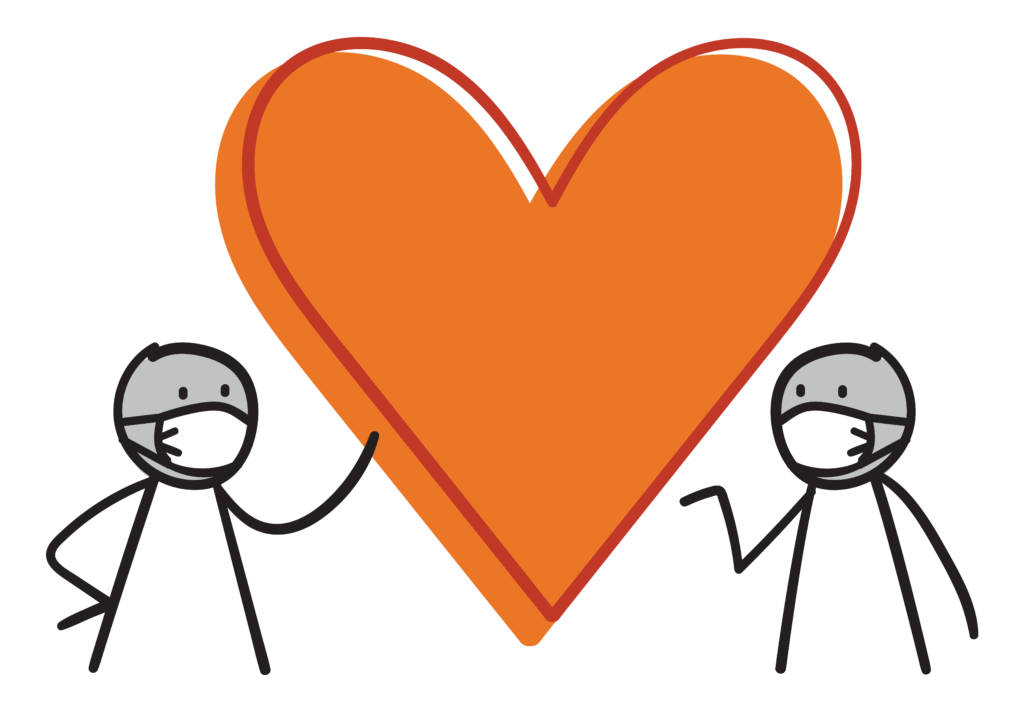Meet meeting fatigue face-to-face (part 3 of 3: the personal)
Part three in a series. Here are parts one and two.
The final part of this series on better dealing with virtual meetings is more personal. We’ve covered software settings you can change, meeting plans you can change, and now we look at what you might be able to change about your personal outlook and approach to continued online meetings.
The pandemic has raised everyone’s stress levels and being on camera constantly doesn’t help (even though it’s usually highly recommended). But know this: because of this the global approach to business communication has changed, our organizational collaboration methods are shifting shifting, and business travel may never be the same—so we’ve all got to find ways to adapt in the long run. Yes, offices will open back up but we’ll still be doing a lot of meetings online. So let’s move beyond tech tricks and agenda tips.
3. Find the right combination of stoic self-control and compassionate self-care.
Introverts and extroverts alike can benefit from a more mindful and empathetic approach to surviving (and and even thriving) in a future filled with Zoom calls.
Be here now
We all get invited to meetings we don’t want or need to be in. If you’re able to honestly and sincerely decline or send a representative, then do it. But if your presence is required, then be present. Be there. Pay attention, participate as needed, and avoid multitasking. The temptation to get other things done while on a call is nearly overwhelming even though we’re all well aware that multitasking is a profoundly illegitimate kind of productivity. Yes, you get stuff done—but the cost hits your credibility even more than it hits your productivity.
First, if you’re on camera it’s pretty obvious when you’re doing something else. It’s both rude and demoralizing to the rest of the group. Second, you’re cheating everyone out of the attention, perspective, and contributions you were supposed to bring to the call. This also is rude and demoralizing to others. Third, you not paying attention is an implicit “OK’ for others to not pay attention. Rude. Demoralizing. If everyone is multitasking that means so much less really gets done.
Suck it up. Be there. Power through, get shit done, and end early if you can. Time given back is more valuable than time stolen.
Make time for yourself
The mental wear of pandemic stress, non-optional remote work, the unavoidable interruptions of family life, and constant video calls must be balanced out with self-care. If you get nervous before important calls then download Headspace or Calm and try some 5- or 10-minute meditations right before the call. If you get frustrated or upset when a meeting doesn’t go as well as you’d hoped, don’t simply fume afterwards—decompress with some mindful breathing guided by one of those apps.
It’s not magic; it’s even more valuable because it’s something everyone can do. Again, going all in is the best way to see the benefits. What if for one week you spent just five minutes of every on-the-clock hour in quiet meditation? Or what if you explored the Pomodoro technique to build better breaks into your day?
Or, of course, you can just get outside and walk before work, at lunchtime, or after work. Do 15 minutes of yoga or a 7-minute workout. Run, lift, stretch. Visit with your family. Chill with the pet. Eat away from your desk. It’s the coming up for air that lets you dive back into things.
Save others’ time
Sometimes the best meeting is the one that doesn’t happen. Figure out what can get done without requiring a meeting. Your first instinct might be to send out an invite, but I invite you to take a moment and consider the alternatives.
Can this be hashed out over Slack or IM?
Maybe a simple phone call or email?
Can the team collaborate asynchronously using Miro or other shared virtual whiteboards or documents?
Could more detailed and consistent status reports substitute for get-togethers?
As a company, can you block off certain hours of the day for real heads-down work and restrict meetings to specific windows?
If a meeting is needed, can it be shorter? Require fewer people? Be better organized? Better facilitated? More outcomes-oriented? In many, many cases the answer is yes, yes, yes, yes, and yes.
Just remember that a one-hour meeting with a group of eight colleagues isn’t just an hour’s worth of time sucked from your day, it’s a day’s worth of time extracted from your organization. So whatever alternatives you find to be personally helpful in saving time, you’ll be helping more than just yourself.
Drawings by Tremendousness. Previously: Reconsider the settings on your virtual meeting software & Organize your virtual meetings with a little more care (and occasionally less).
